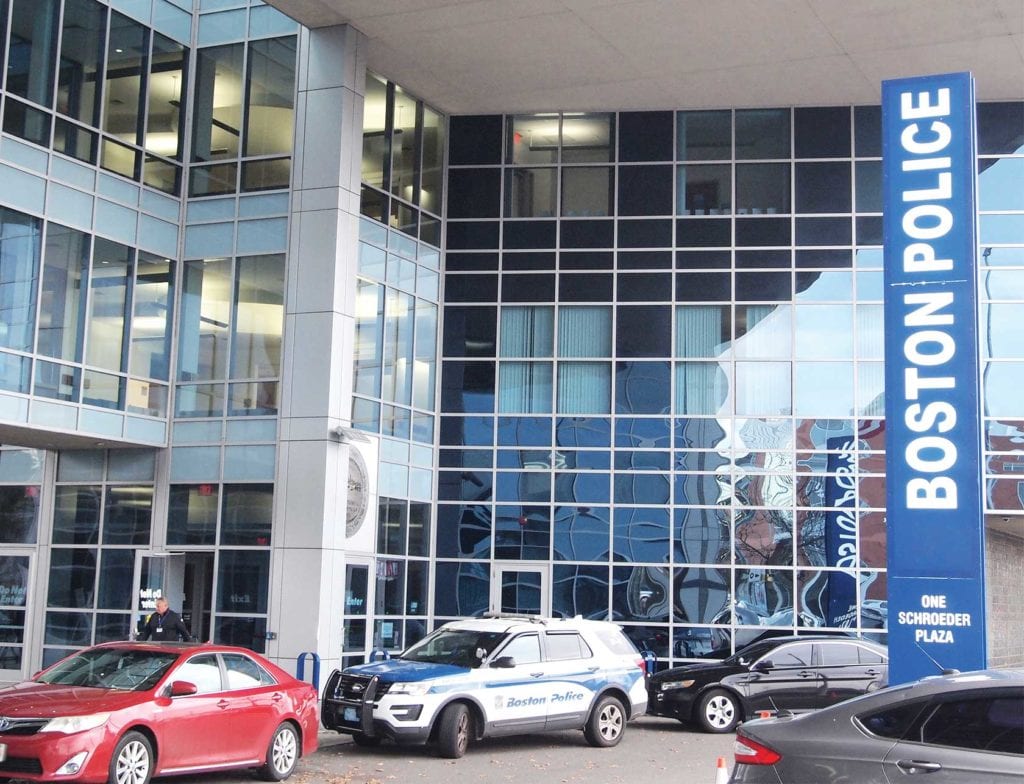Mayor makes appointments to police review board
Community panel has same limited powers

Mayor Martin Walsh has appointed four new members to the city’s Community Ombudsmen Oversight Panel, filling out its ranks two years after he pledged to revitalize the struggling board.
The board, which is charged with reviewing allegations of police misconduct, previously had three members, but ended last year with just one member.
The new members are Christina Miller, a Suffolk University Law School assistant professor and former chief of district courts and community prosecutions with the Suffolk County District Attorney’s Office; Meredith Paige Shih, a Harvard Law School clinical instructor and a former public defender; Julien Mundele, an associate at Todd & Weld LLP and former assistant district attorney; and Jassie Senwah, a shelter coordinator at the Transition House domestic violence shelter and a former member of the Suffolk County District Attorney’s Office Victim Witness Advocate Unit.
The four new members join former Superior Court Justice Regina Quinlan Doherty on the panel.
The CO-OP was formed in 2007 by Mayor Thomas Menino, 15 years after a city-convened panel recommended the creation of a civilian review panel to investigate allegations of police misconduct. While civil rights activists in Boston had sought an independent panel with investigatory powers, the CO-OP panel’s power is limited to reviewing investigations already conducted by the Boston Police Department’s Internal Affairs Division (IAD).
CO-OP members do not have to power to initiate or conduct their own investigations. Civilian complainants, however, can request a CO-OP review of their case if they do so within 14 days of the conclusion of an IAD investigation.
After reviewing an IAD investigation, the CO-OP can issue one of four findings: that the investigation was “fair and thorough,” “not fair, but thorough,” “fair, but not thorough” or “not fair and not thorough.”
The CO-OP panel can refer cases it found not fair and not thorough to the police commissioner, who has the sole discretion on whether or not to reopen an IAD investigation.
The panel’s lack of power has drawn fire from civil rights activists over the years.
“If they’re at home in the evening and they see a case of misconduct on the evening news, they can’t go into work the next day and say, ‘We want to have that case,’” said Jamarhl Crawford, who runs the news website Blackstonian. “What they see is limited to cases that have already been investigated.”
Crawford isn’t alone in his assessment. In 2015, the three-member panel recommended that they be given a larger sample of cases to review and that the city create a “community-based office of citizen complaint intake and resolution” as a means of restoring the community’s trust in the police department’s internal affairs process. The panel members wrote that the current process “denies the community a contemporaneous voice in the complaint resolution process, one that ensures investigations are conducted in a timely and procedurally just manner.”
Crawford said the panel’s recommendations have fallen on deaf ears.
“Of every recommendation that they have issued, none have been followed,” he said.
After the 2016 year, the CO-OP ceased issuing yearly reports. By December 2019, Quinlan was the only member serving on the panel.
While the increased size of the panel from three to five slots may increase the number of cases they are able to review, their powers remain as limited as when the board was created in 2007, Crawford notes.
“The entire Internal Affairs Division needs to be reworked,” he said. “There’s not enough people working there. The CO-OP board noted this. And there needs to be a civilian review board.”


![Banner [Virtual] Art Gallery](https://baystatebanner.com/wp-content/uploads/2024/04/Cagen-Luse_Men-at-store-e1713991226112-150x150.jpg)



